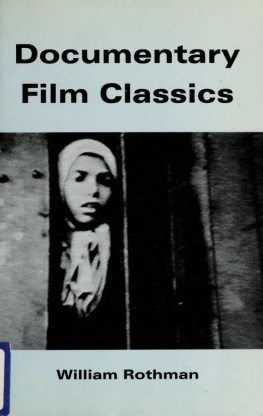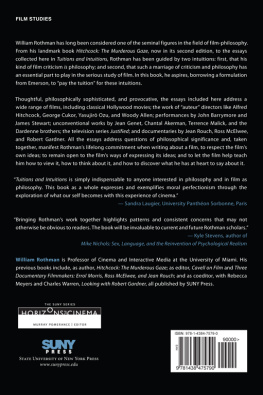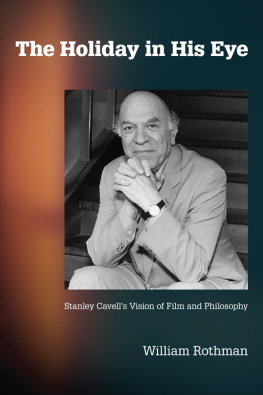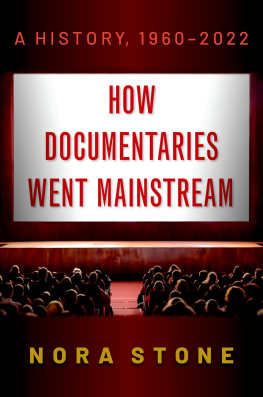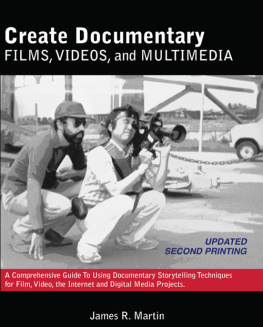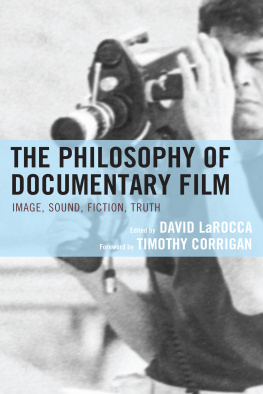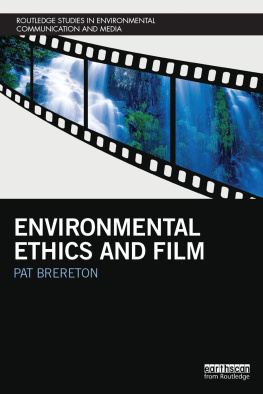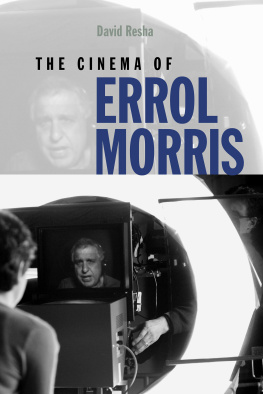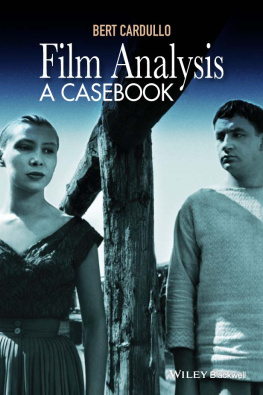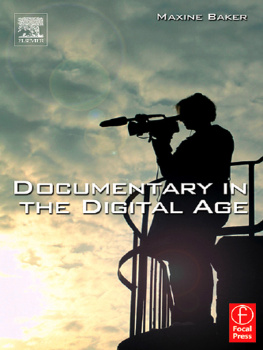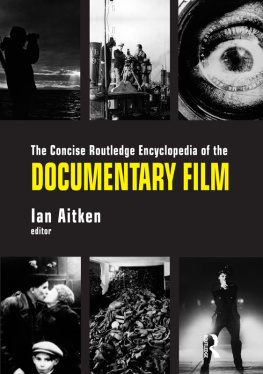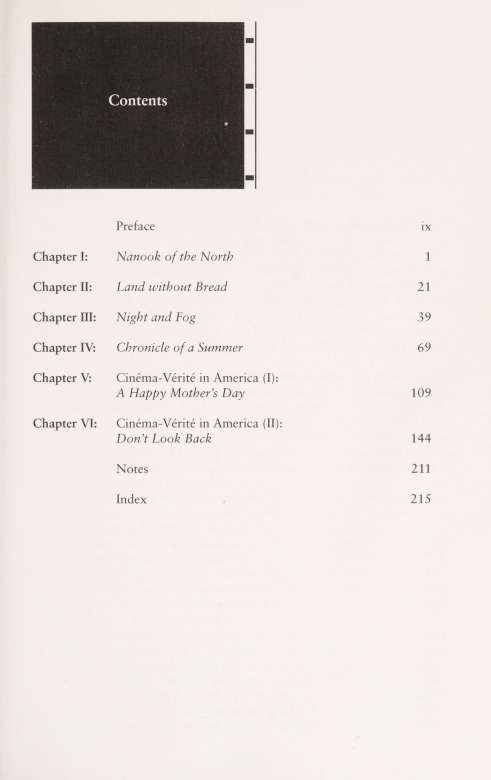This book made available by the Internet Archive.
For Kitty
\
i
i
I
Mi -j-' "

r-. I

CAMBRIDGE STUDIES IN FILM
GENERAL EDITORS
Dudley Andrew, University of Iowa Henry Breitrose, Stanford University William Rothman, University of Miami
OTHER BOOKS IN THE SERIES
Fibn and Phenomenology, by Allan Casebier
Metaphor and Film, by Trevor Wittock
The Gorgon's Gaze: German Cinema, Expressionism, and the Image of Horror, by Paul Coates
The I of the Camera: Essays in Film Criticism, History, and Aesthetics, by William Rothman
Nonindifferent Nature: Film and the Structure of Thmgs, by Sergei Eisenstein (Translated by Herbert Marshall)
Constructivism in Film: The Man with the Movie Camera,
by Vlada Petrie
Inside Soviet Film Satire: Laughter with a Lash, Andrew Horton, editor
Melodrama and Asian Cinema, by Wimal Dissanayake
Film at the Intersection of High and Mass Culture,
by Paul Coates
Another Frank Capra, by Leland Poague
Russian Critics on the Cinema of Glasnost, Michael Brashinsky and Andrew Horton, editors
Projecting Illusion: Film Spectatorship and the Impression of Reality, by Richard Allen



Preface

Documentary Film Classics consists primarily of close readings of a number of major landmarks of documentary film: Robert Flahertys Nanook of the North (1921), Luis Buhuels Land without Bread (1932), Alain Resnaiss Night and Fog (1955), Jean Rouchs and Edgar Morins Chronicle of a Summer (1961), Richard Leacocks and Joyce Chopras A Happy Mothers Day (1963), and D. A. Pennebakers Dont Look Back (1967). These are films that are all but obligatory for any course surveying the documentary tradition, films I have been thinking about and teaching for many years, films I am continually rediscovering through my students responses as well as my own.
The critical readings that comprise this book are meant to guide readers through the cinematic texts of these classic documentaries - sequence by sequence, sometimes shot by shot - in a way that leads to a fuller appreciation both of their historical significance and their aspirations and achievements as films. In the spirit of my earlier books, HitchcockThe Murderous Gaze and The 'T of the Camera, these readings, individually and together, also sustain philosophical investigations of a number of interrelated issues and themes.
Despite the inclusion of accomplished documentary filmmakers in so many university film faculties, the field of film study has only recently begun to show significant interest in documentaries.^ Even now, there remains a striking dearth of serious critical studies of documentary films. The work of Frederick Wiseman, the subject of more than one excellent book-length critical study, has been the main exception to this pervasive neglect.^ Wisemans films clearly merit the thoughtful and sympathetic attention they have received. But there are many documentary filmmakers whose work is capable of rewarding serious criticism.
In part, the scarcity of critical studies of documentary films is indicative of film studys general neglect of criticism, a consequence of the revolution undergone in the past two decades by a field that has come to accord precedence to what it calls theory and (more recently) what it calls historiography. There has been a special animus, though, in film studys resistance to devoting sympathetic critical attention even to the most significant works within the documentary tradition. It derives from the claim sometimes made
ix

Preface
on behalf of documentary films - less often by their makers or admirers than by detractors who invoke the claim only with the intention of repudiating it - that documentaries are capable of directly capturing reality. From the standpoint of the dominant contemporary film theories, which take reality to be an illusory ideological construct, such a claim seems intolerably naive or disingenuous.
Within contemporary film study, it is generally supposed that there is a clear distinction to be drawn between the American films discussed in this book (Nanook of the North, A Happy Mothers Day, Dont Look Back), which are presumed guilty of making the naive claim that they capture reality directly, and the European films (Land without Bread, Night and Fog, Chronicle of a Summer), which are taken to be far more sophisticated about philosophical issues of reality and representation, and hence exonerated. Land without Bread, for example, tends to be viewed - and taught - as if it were a mock documentary, not really a documentary at all; Night and Fog as a demonstration that the medium of film is not capable of representing the true dimension of the death camps; and Chronicle of a Summer as employing a wide range of sophisticated strategies to deny that the new method of filming it exemplifies (which Rouch, echoing Vertov, dubbed cinema-verite) is a direct and truthful way to document the world as it is.
Within contemporary film study, these European films are viewed as if they simply repudiated documentarys traditional aspiration of revealing reality, as if they were antidocumentaries, in effect. As the readings in this book demonstrate, however, although Land without Bread, Night and Fog and Chronicle of a Summer are, indeed, sophisticated critiques of documentary modes of representation in film, they are also major achievements as documentaries. They do not deny the possibility of revealing reality in the medium of film; they achieve such revelations even as they reflect on the conditions that make their revelations possible.
As these readings also demonstrate, such classic American cinema-verite documentaries as A Happy Mothers Day and Dont Look Back - I find the distinction between cinema-verite and direct cinema prejudicial and unhelpful, and have no qualms about applying the term cinema-verite to the films of Leacock and Pennebaker as well as those of Rouch - likewise achieve revelations of reality and at the same time reflect seriously on the conditions of the film medium that make their revelations possible. To a surprising degree, this is true, as well, of their famous progenitor Nanook of the North. These American films address the same philosophical issues of reality and representation as their European cousins, and do so in ways that are no less sophisticated, philosophically. Indeed, all the films I address are revealed, in the readings that follow, as bearing far more intimate relationships to one another - as having far more in common, philosophically -than has ever been suggested.

